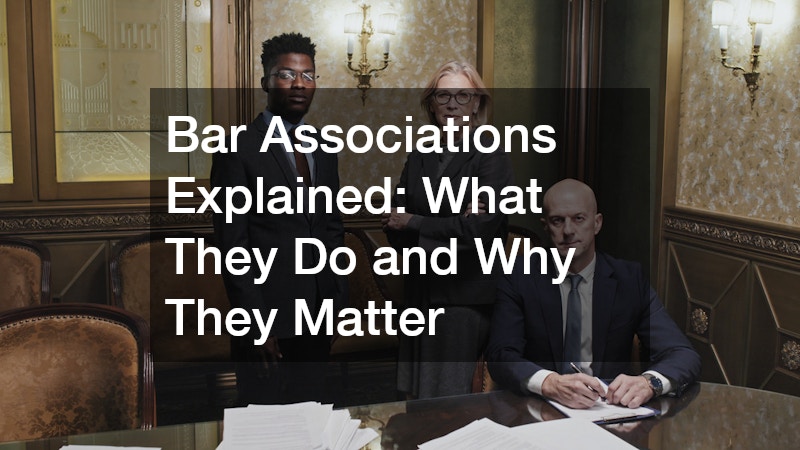
For many people, the term bar association might sound like an exclusive club for lawyers—but its purpose goes far beyond social networking. These organizations serve as vital hubs for professional development, ethical guidance, and community engagement. Whether you’re a practicing attorney, a law student, or simply curious about the legal system, understanding what they do can shed light on how the legal profession functions and how it serves the broader community.
In places like New York City, where the legal landscape is vast and complex, bar associations play a crucial role in connecting professionals, setting standards, and supporting public access to justice.
By fostering collaboration among lawyers and promoting ethical practice, these organizations help maintain the integrity of the legal system. They are also instrumental in shaping policies that impact both the profession and the public, ensuring that the law evolves to meet modern societal needs.
What They Are
At their core, a bar association is an organization of lawyers designed to advance the interests of their members and, in many cases, the public. While the term “bar” refers to the legal profession as a whole, these groups provide resources, guidance, and advocacy for attorneys. Membership can be mandatory or voluntary, depending on the state and type of association.
Mandatory organizations, often called “integrated” or “unified” bars, require all licensed lawyers in a jurisdiction to join. They handle regulatory and licensing duties in addition to professional development. Voluntary groups focus on education, networking, and advocacy, but do not have licensing authority. In New York, for example, the New York State Bar Association is voluntary, while a local bar association provides more community-oriented programs and specialized support for members in different practice areas.
Understanding their structure and purpose provides insight into the breadth of services they offer, from lawyer support to public outreach initiatives. These groups serve as both the professional backbone of the legal field and a bridge to the communities lawyers serve.
How They Support Lawyers
One of the primary functions of these organizations is to provide support and resources for legal professionals. This support comes in many forms, from continuing education to career guidance. For example, they often offer seminars, workshops, and certification programs that help lawyers stay updated on changes in law, ethics, and practice management. These programs are especially important in a fast-paced legal hub like NYC, where laws and regulations evolve rapidly.
Networking is another key benefit. Through these associations, attorneys can meet peers, mentors, and potential collaborators. These connections often lead to professional opportunities, referrals, and a sense of community within what can otherwise be a competitive field.
They also serve as advocates for lawyers’ interests. Associations may lobby for legislative changes, provide legal research resources, or publish newsletters and journals highlighting important legal developments.
How They Serve the Public
While the internal benefits are clear, these organizations also have a significant impact on the public. Many engage in programs that increase access to justice, educate the community about legal rights, and provide volunteer legal services.
In NYC, for example, they sponsor pro bono initiatives, legal aid clinics, and community outreach events. These programs help ensure that people who might not otherwise afford legal assistance can still receive guidance and representation. Public education is another important focus. Associations often publish materials, host workshops, and offer online resources to help the public understand their rights, navigate legal processes, and make informed decisions.
By facilitating both professional development and public service, these organizations bridge the gap between lawyers and the communities they serve. This dual mission allows a driven bar association to serve as an essential part of a healthy and accessible legal system.
A bar association is far more than a membership organization for lawyers. It is a cornerstone of the legal profession, supporting attorneys, setting ethical standards, and providing valuable services to the public. Whether through continuing education, networking, advocacy, or community outreach, these groups strengthen both the legal community and society at large.
For anyone navigating the legal world, whether as a professional or a member of the public seeking guidance, having a handle on the role and function of a bar association is essential. These organizations ensure that the law remains accessible, reliable, and responsive to the needs of both lawyers and the people they serve. In cities like New York, where the legal landscape is as vast as it is complex, they are indispensable pillars of professional integrity and public service.




